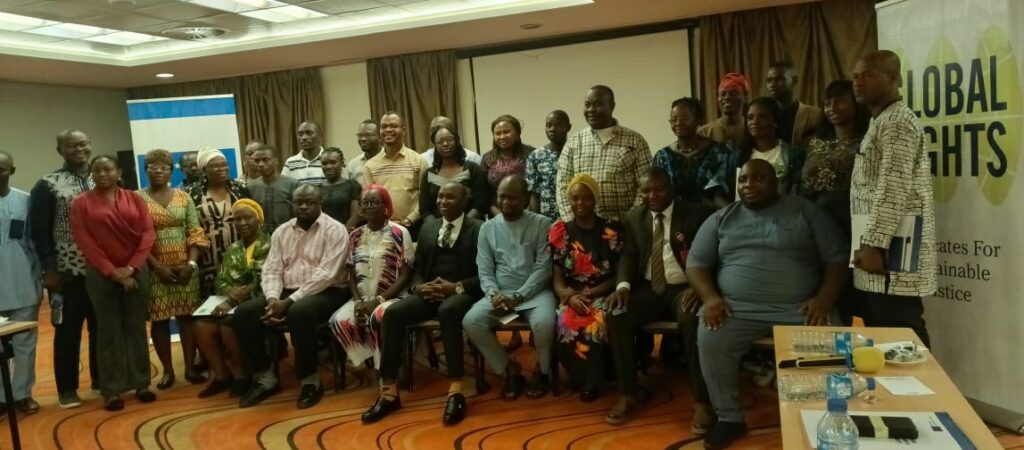Daud Olatunji
The Economic and Financial Crimes Commission (EFCC) has issued a stern warning to Non-Governmental Organisations (NGOs) and Civil Society Organisations (CSOs), cautioning them against inadvertently becoming conduits for terrorism financing and money laundering due to regulatory non-compliance.
Speaking during a two-day training on “Strengthening a Community of Practice to Improve The CSO Regulatory Environment In Nigeria” held in Abeokuta, Ogun State, the EFCC’s Assistant Inspector, Monye Ekene, stressed the urgency for nonprofit entities to align with the provisions of the Money Laundering (Prevention and Prohibition) Act, 2022.
The training was organised by Global Rights as part of an initiative to sensitise civil groups on their legal obligations.
Ekene highlighted that nonprofit organisations must not only register with the Corporate Affairs Commission (CAC) but also obtain certification from the Special Control Unit Against Money Laundering (SCUML), a regulatory unit under the EFCC.
He emphasised that compliance with these provisions would strengthen Nigeria’s fight against terrorism financing and illicit financial flows.
“It is not enough to be registered. NGOs must screen their donors, trustees, and staff to ensure they are not linked to terrorist networks or criminal financial operations,” Ekene warned.
He added that the law mandates NGOs to maintain thorough records of financial transactions, report suspicious activities, and file both quarterly and annual reports with the EFCC.
“Ignorance is not a defence in the eyes of the law,” he said, warning of sanctions for defaulting organisations.
In a move to curb exploitation, Ekene revealed that the SCUML certification process is entirely free, debunking claims that individuals must pay up to N1 million to obtain it.
“No one should be paying a dime for SCUML registration. It’s a free and straightforward process available online,” he clarified.
However, civil society actors at the event raised concerns over what they described as a “cumbersome and overlapping” regulatory environment.
Speaking with newsmen, Damilola Decker, Programme Manager for Civil Space Strengthening at Global Rights, lamented the multiple and sometimes conflicting compliance demands from agencies such as the EFCC, CAC, and Federal Inland Revenue Service (FIRS).

“While we agree that regulation is necessary, the current framework is burdensome and often duplicative. This discourages compliance and affects our ability to deliver timely interventions,” Decker told journalists.
He argued that CSOs and NGOs are essential partners in national development, providing services to vulnerable and underserved populations that government programmes often overlook.
“We’re not asking for deregulation, but for a harmonised and supportive framework that enables civil organisations to thrive,” Decker added.
Funded by the European Union, Decker said, the training is part of a broader initiative running across seven states—Ogun, Oyo, Osun, Ebonyi, Anambra, Akwa Ibom, and Cross River—to equip nonprofits with essential knowledge about compliance and risk mitigation.
According to Decker, many organisations are well-intentioned but unaware of the full regulatory landscape.
“Now that they’re informed, the expectation is that they act accordingly, because non-compliance—even if unintentional—can attract grave consequences,” he said.
Do you want to share a story with us? Do you want to advertise with us? Do you need publicity for a product, service, or event? Contact us on WhatsApp +2348183319097 Email: platformtimes@gmail.com
We are committed to impactful investigative journalism for human interest and social justice. Your donation will help us tell more stories. Kindly donate any amount HERE




